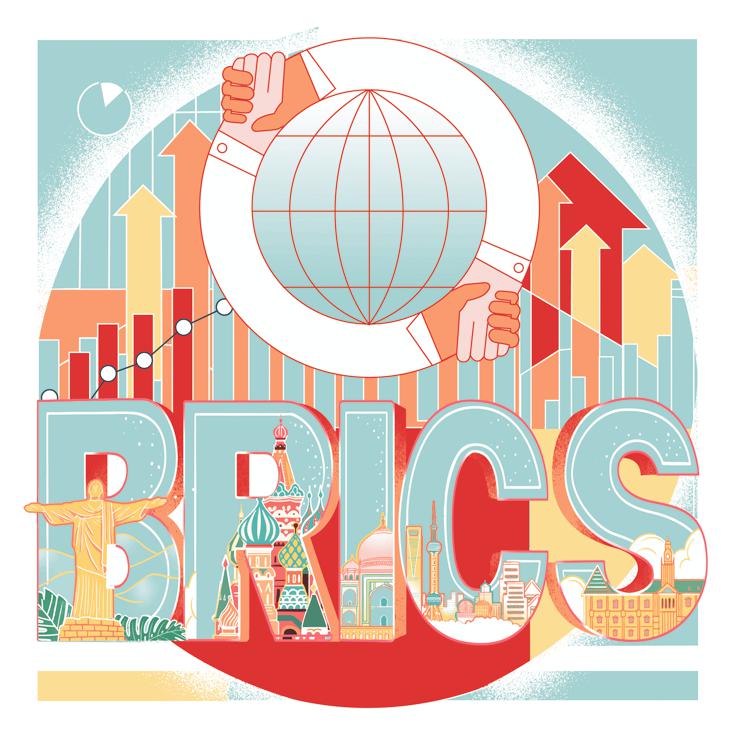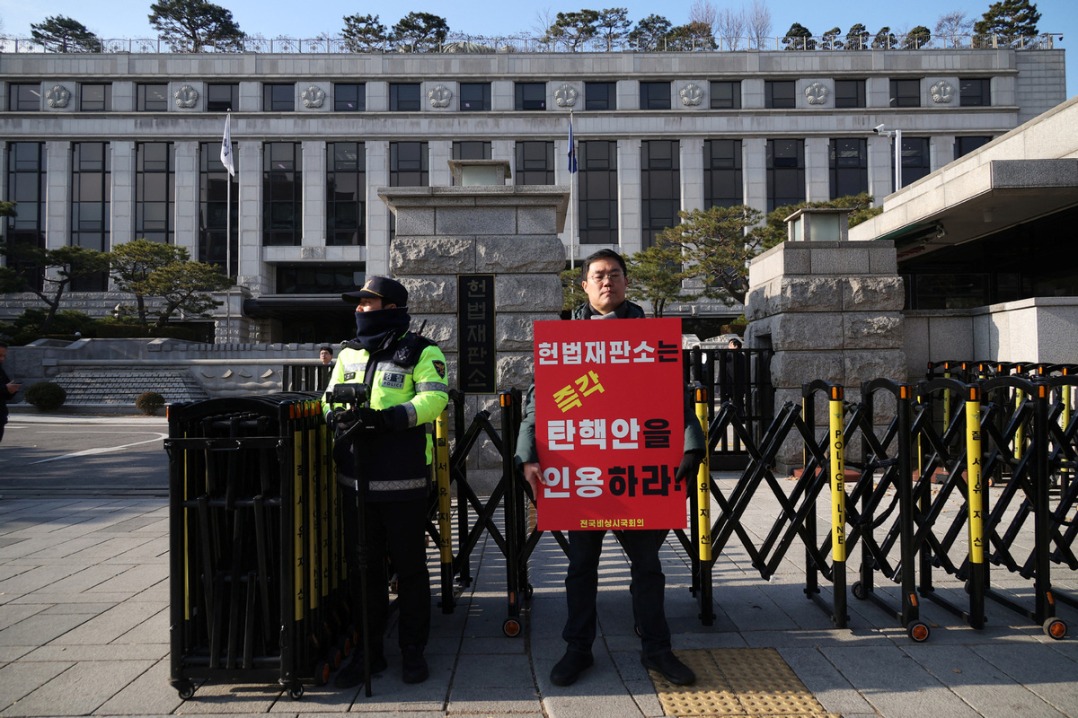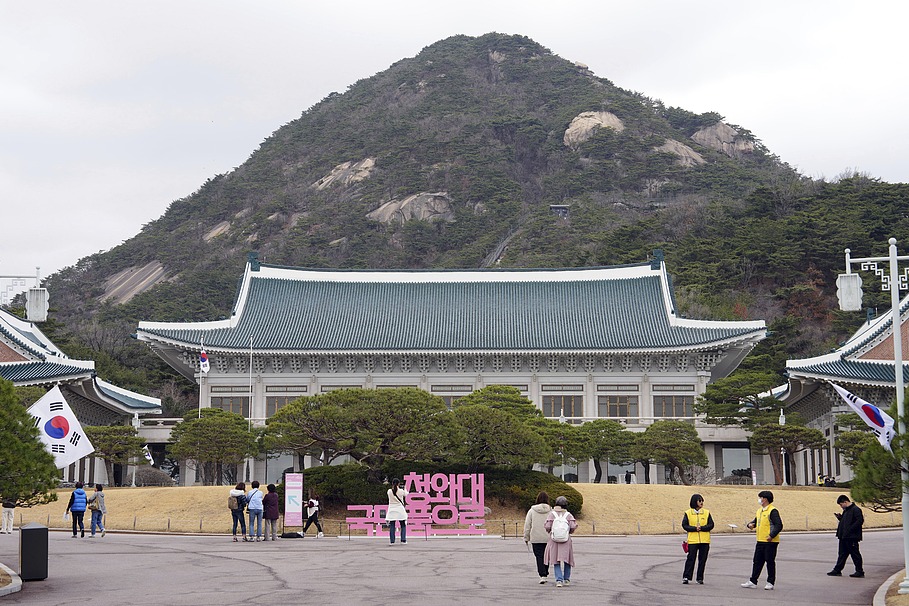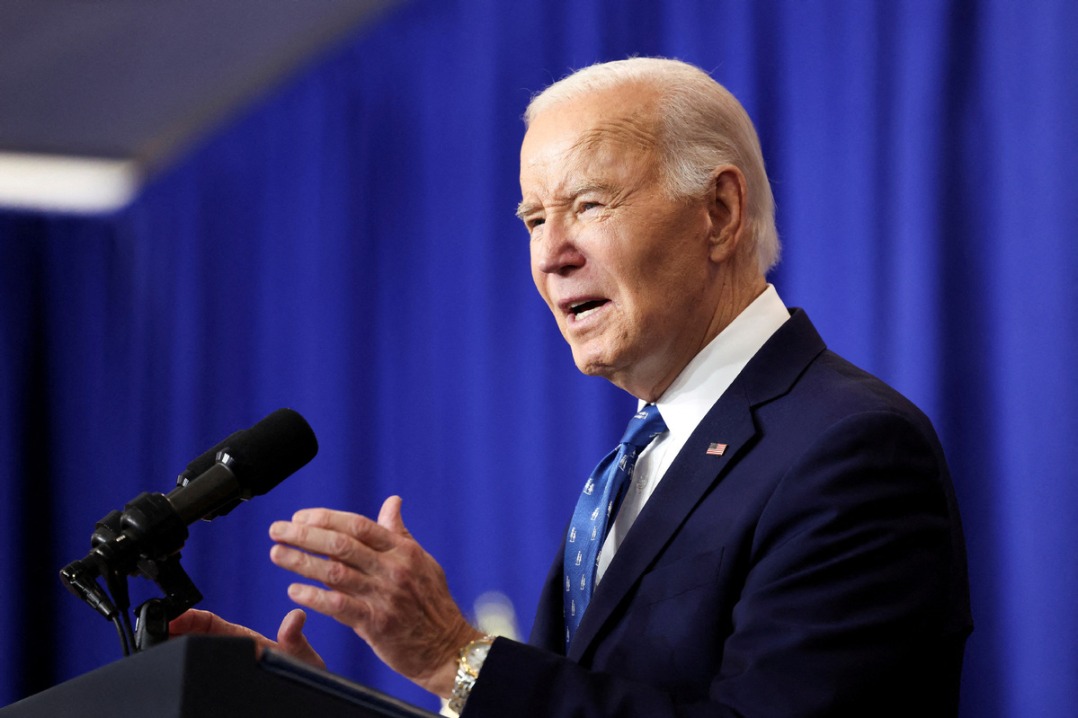It's time for more African representation in BRICS


President Xi Jinping will host the 14th BRICS Summit on Thursday and the High-level Dialogue on Global Development from Beijing on Friday in a virtual format, at a time when the COVID-19 pandemic has affected the global economy and has disrupted global gains in poverty alleviation and the implementation of the United Nations 2030 Agenda for Sustainable Development.
The BRICS countries-Brazil, Russia, India, China and South Africa-can galvanize their collective clout as the world's leading emerging economies to firmly support the Global Development Initiative proposed by Xi, and ensure that no country and no person is left behind in combating COVID-19.This can be done through universal vaccination programs, enhancing food security, poverty reduction and financing for development, as well as by advancing digital economy and connectivity, industrialization and green development.
Together, the BRICS countries comprise more than 3.2 billion people, or 42 percent of the world's population, and cover more than one-fourth of the world's land area. In addition, they account for more than 31 percent of global GDP.
Thus, amid the current global economic crisis, the BRICS countries have a unique opportunity to provide renewed impetus to global economic cooperation. For example, BRICS' trade and investment with low-income countries have served as a major support system during the pandemic, with China taking the lead in the fight against COVID-19.
Nonetheless, in embracing the summit's theme of "Foster High-Quality BRICS Partnership, Usher in a New Era for Global Development", it is time for the BRICS group to add more like-minded partners to form "BRICS Plus".
Looking back, China invited South Africa to join what was then BRIC on Dec 24, 2010. South Africa became the only member representing the continent of Africa, which has a population of about 1.4 billion people, produces at least 50 percent of the diamonds and gold in the world, and has the world's largest free trade area (the African Continental Free Trade Area), which is creating an entirely new development path for its people.
However, Africa still remains poor and fragile, which leads to proposing more representation in the BRICS group. In fostering dialogue and cooperation with other emerging markets and developing countries, as well as international organizations, to broaden South-South cooperation for common development and prosperity, the East African Community's member states should qualify for consideration to join "BRICS Plus".
The East African Community countries-the Democratic Republic of Congo, Tanzania, Kenya, Burundi, Rwanda, South Sudan and Uganda-bring to the table a market size of approximately 300 million people with a combined GDP of about $240 billion.
Other than the market value and human capital, the member countries also have an abundance of natural resources such as titanium, gold, oil, gas, cobalt, nickel, diamonds, copper, coal and iron ores. In addition, the East African Community has invested heavily in infrastructure development through the Belt and Road Initiative, developed its macroeconomic policies, enhanced its peace and security strategy, and has countries that are strategically located to boost international trade and cooperation. Key among these countries is Kenya.
According to the Africa Regional Integration Index Report 2019, Kenya is the second-best country, in terms of regional integration policies, in the East African Community. Its performance on regional infrastructure, productive integration, free movement of people and financial and macroeconomic integration is high, the report said.
Further, Kenya enjoys trade facilitation agreements through the World Trade Organization and regional groups.
As one of the anchor countries in the expansion of China-Africa cooperation and a key proponent of the Global Development Initiative, Kenya can effectively represent the East African Community in the proposed "BRICS Plus". It can bring a wealth of experience as a member of the African Union Peace and Security Council and a nonpermanent member of the United Nations Security Council to boost Africa's representation in the BRICS fraternity to enhance world economic recovery, with a view to achieving stronger global development.
The author is executive director of the China-Africa Center at the Africa Policy Institute in Kenya.

































